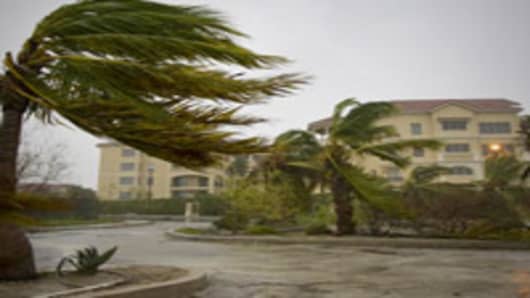As the Gulf Coast battles the worst oil spill in U.S. history, residents are also bracing for what forecasters predict will be the most active hurricane season in recent years.
So what happens when a hurricane meets an oil spill?
Testifying before the Senate Commerce Committee on May 18, Jane Lubchenco, Administrator of the National Oceanic and Atmospheric Administration (NOAA), conceded scientists don't really know.
But now, on the eve of the June 1 start of hurricane season, NOAA is trying to separate what it does know from fiction. The agency has released a fact sheet that offers plenty of reasons for relief and a few areas of concern.
On the positive side, NOAA says oil is unlikely to affect the track or the intensity of a fully developed storm. That's because "(m)ost hurricanes span an enormous area of the ocean (200-300 miles)—far wider than the current size of the spill."
Likewise, a hurricane is not likely to create "oily rain," because the storm would draw moisture from an area much wider than the oil slick.
In addition, churning up the water could help disperse the oil. "The high winds and seas will mix and 'weather' the oil which can help accelerate the biodegradation process," NOAA says.
That's the good news.
On the flip side, hurricanes create storm surges—giant walls of water pushing inland that often cause the greatest damage. Now, those surges could become contaminated with oil. "Storms surges may carry oil into the coastline and inland as far as the surge reaches," the fact sheet says.
Hurricanes' winds rotate counterclockwise, so NOAA notes that as a very general rule, a hurricane passing to the west of the oil slick could drive oil to the coast. But a hurricane east of the spill might drive oil out to sea.
NOAA's Climate Prediction Center is forecasting a busy hurricane season this year, with as many as 23 named storms and as many as seven major hurricanes. A normal season averages eleven named storms, six hurricanes and two major hurricanes.
NOAA acknowledges the experience with hurricanes and oil spills in the Gulf of Mexico is limited. Far more common than storms passing through an existing spill are spills caused by storms. Thousands of barrels of oil were spilled due to damage from hurricanes Katrina and Rita in 2005. The agency says the oil released during those storms "became very widely dispersed."



